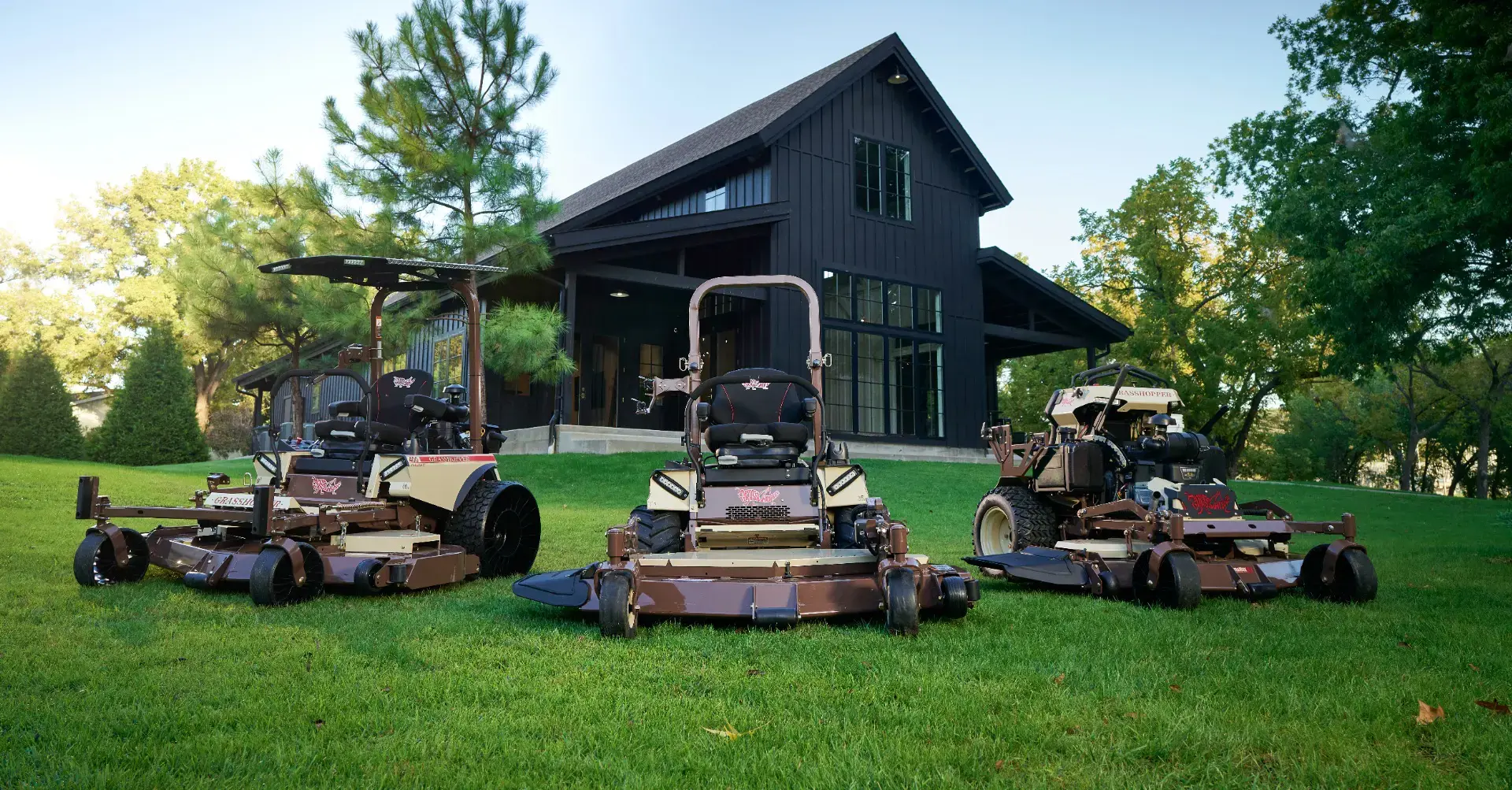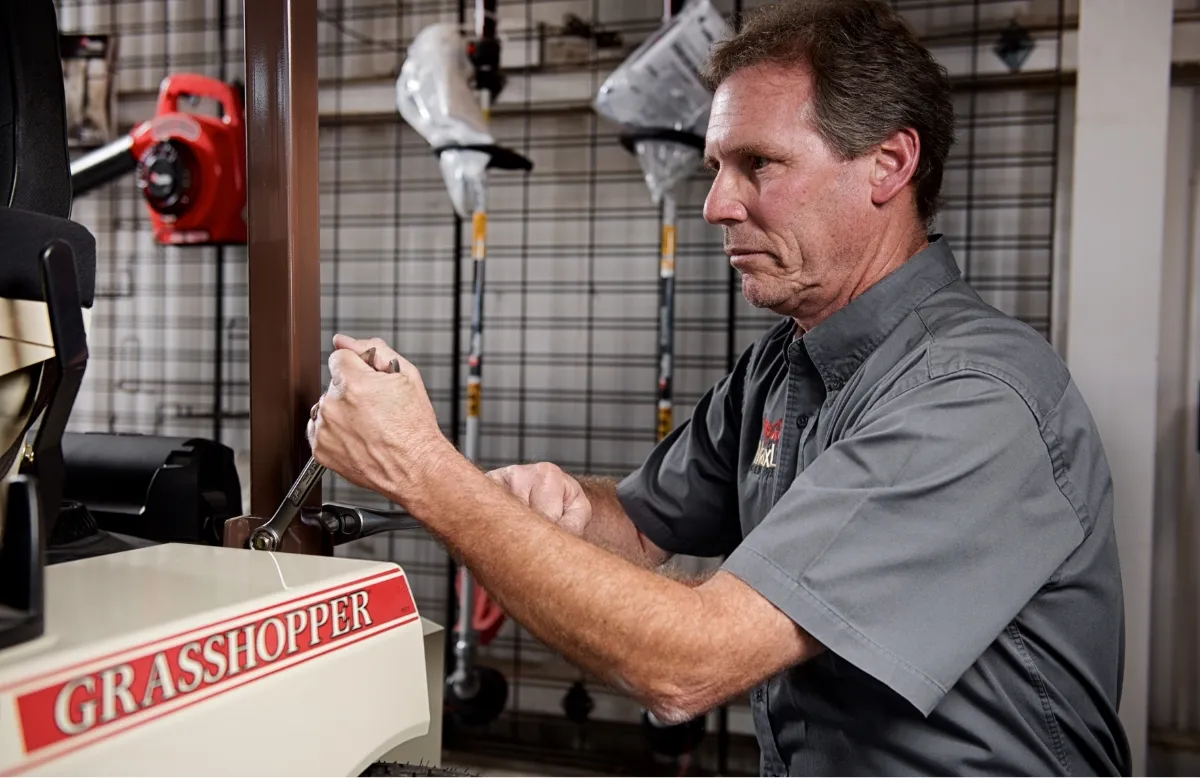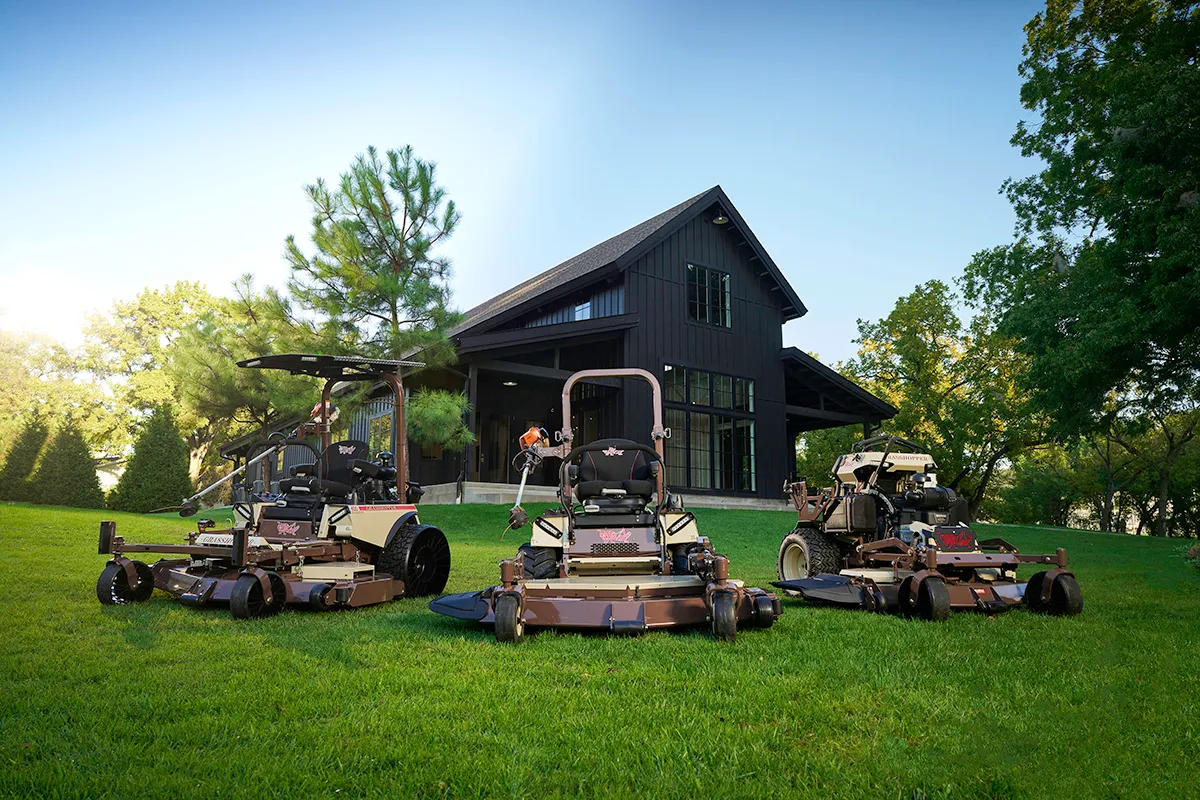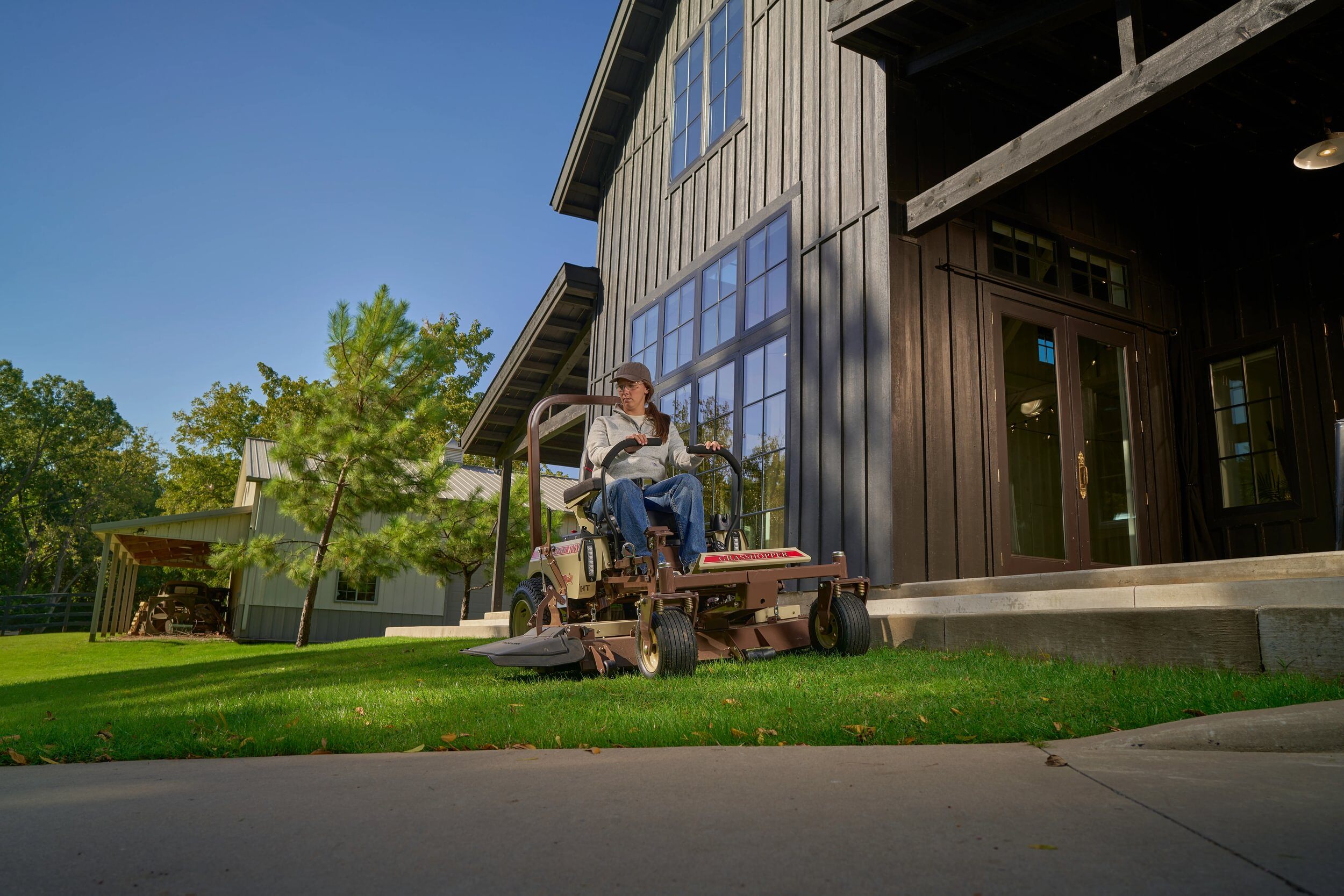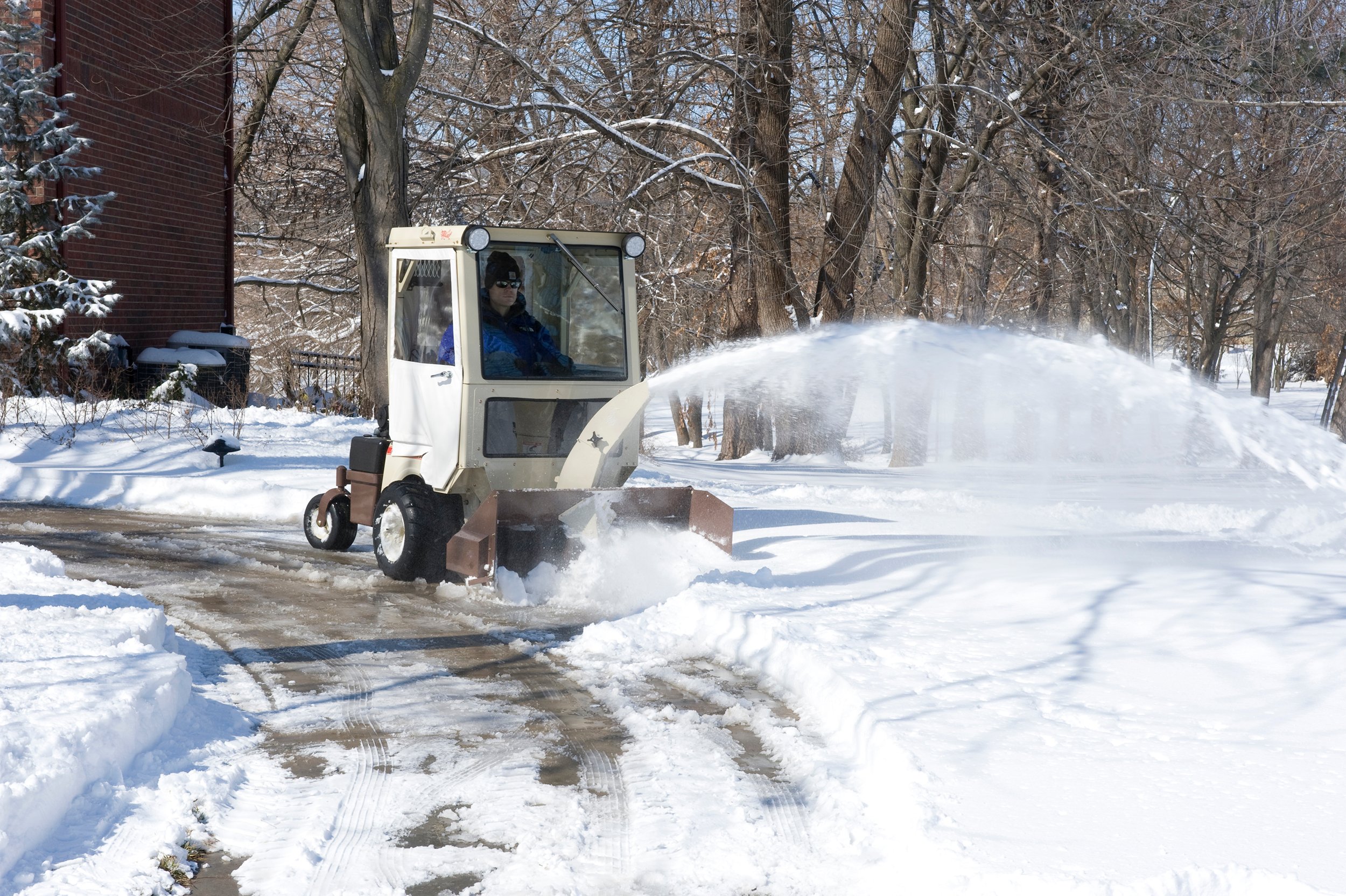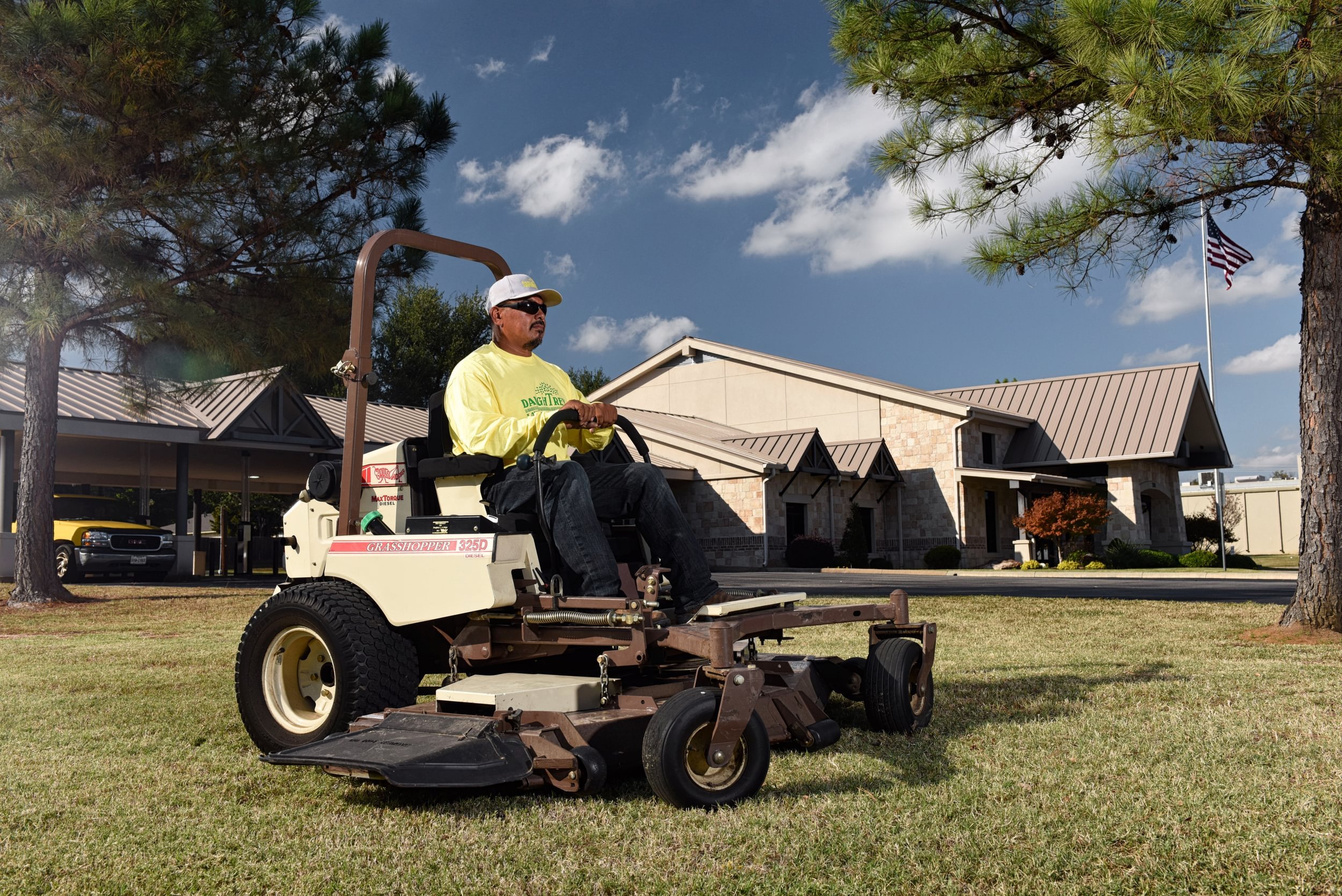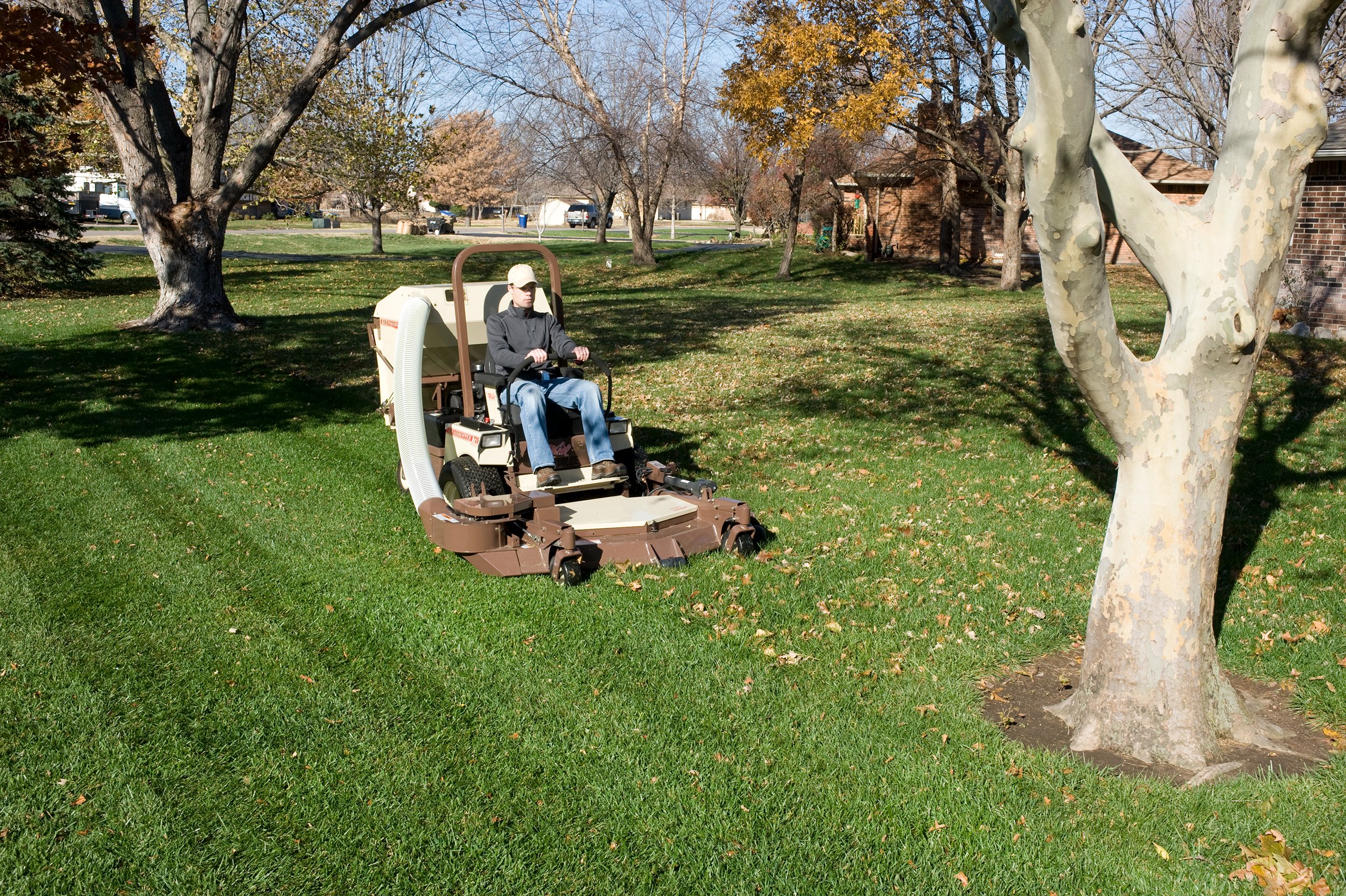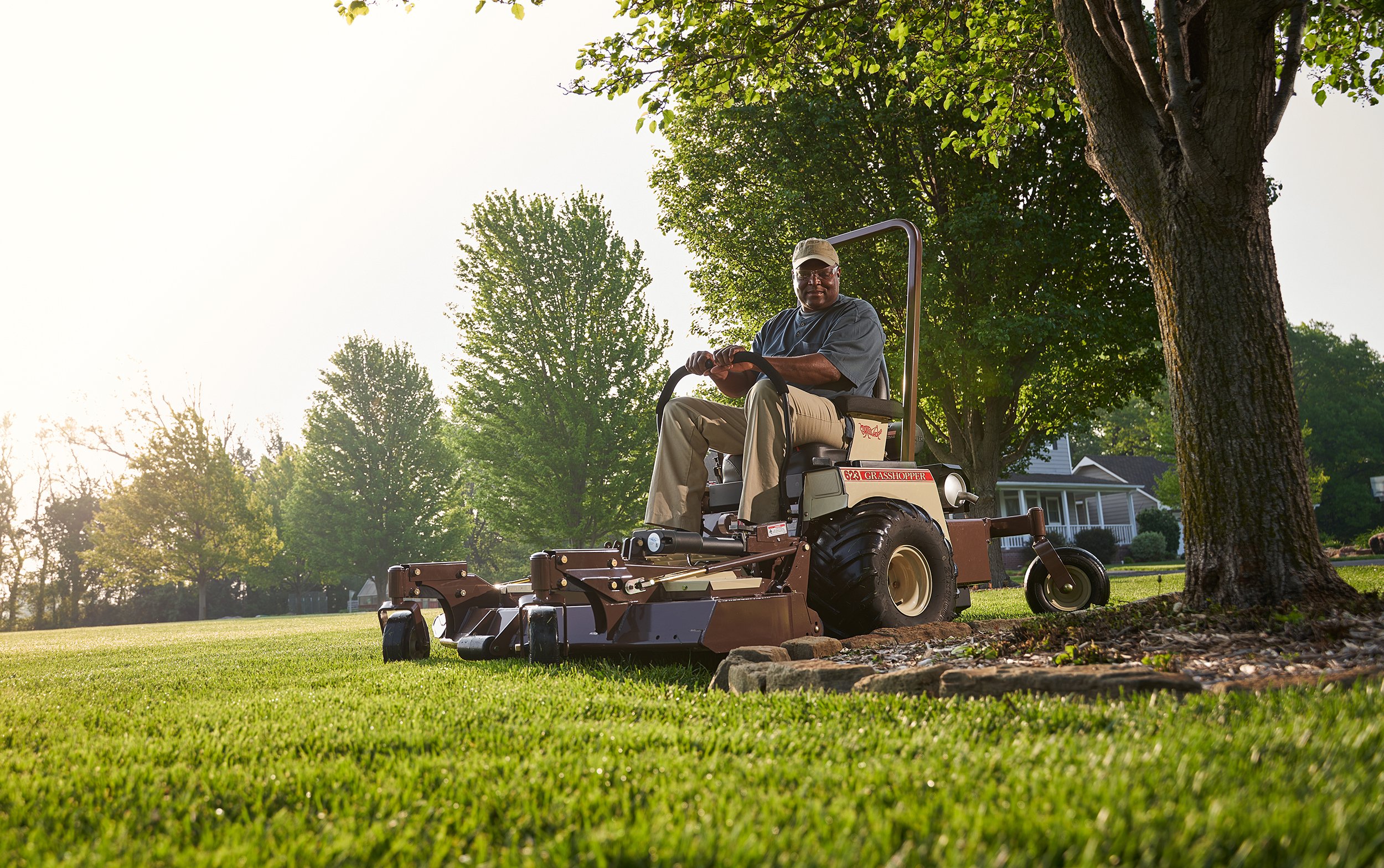- QuickCuts
- Jan 6, 2025
- Landscapers
Six questions to ask a dealer when buying a new mower
Shopping for a new mower can be both exciting and stressful. You take a lot of pride in your lawn, but only have so much time to make it look as nice as possible. Likewise, you only have so much time to shop around and weed through the many mower choices that are available. You simply cannot afford to buy a mower that you’re not going to be happy with.
First things first. If you’re serious about mowing your lawn, you should buy a high-quality machine from a sales-and-service dealer. Secondly, before you make a final buying decision, be sure to ask the dealer these six crucial questions so you end up with a mower you’ll be happy with for many years.
1. What type of mower is best for my lawn?
Many dealers sell both zero-turn mowers and lawn tractors. When time is of the essence, a zero-turn is typically the better choice. A zero-turn is simply faster and more nimble. It’s not uncommon for users to cut their mowing time in half by switching from a lawn tractor to a zero-turn.
Grasshopper offers zero-turn mowers in MidMount™, FrontMount™ and Stand-On configurations. Each features impressive ground speeds and agility. In certain situations, though, a FrontMount could help save time. This is especially the case on properties with a lot of pine trees or other low-hanging obstacles. When the deck is in front of the mower, it’s easy to mow under branches, etc. That eliminates a lot of time you’d have to spend using a handheld string trimmer if you want to keep the property looking manicured.
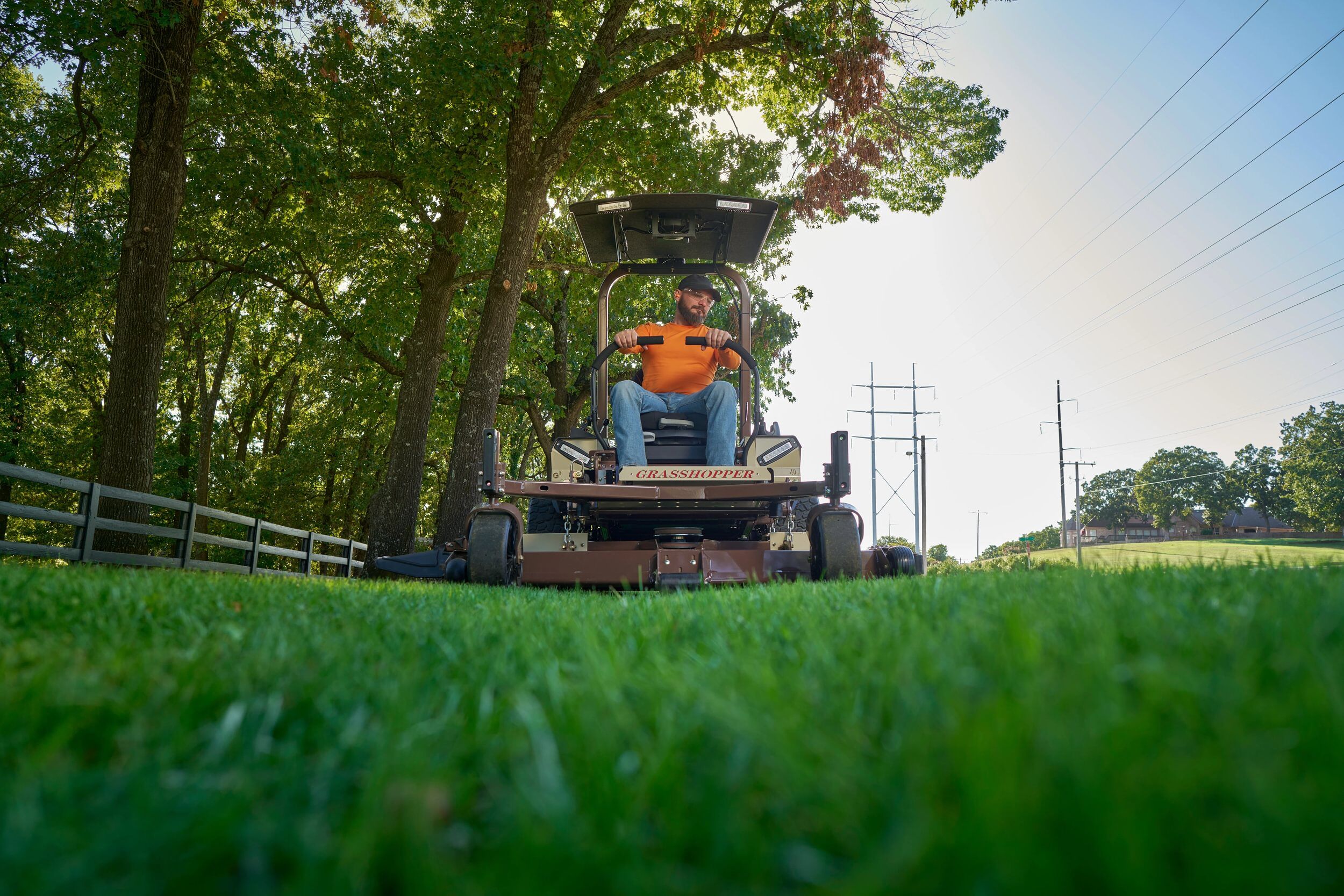
2. How large of a mower do I need?
If your mower will need to fit through a narrow gate or maneuver between tight obstacles in your yard, you may want to lean toward a smaller mower. Beyond that, it really comes down to balancing how much time you want to spend mowing vs. how much money you want to spend, because a larger mower obviously costs a little more. There’s a formula Grasshopper dealers use to estimate how many acres per hour you’ll be able to mow. Having that discussion will help determine the right size for your situation.
It’s also a good idea to discuss the mower’s power. Some mowers are underpowered for the work they’ll be asked to do. For instance, a mower with a downsized engine may struggle in thick grass. Some zero-turns also have smaller transmissions and axles. That could pose trouble in a rural setting where lawns can be rough and bumpy with ditches and hills.
3. Does the mower do a good job of cutting?
There are many factors that play into cut quality, including the optimum balance of horsepower and speed, high-quality and well-maintained blades, and properly inflated tires. Deck design plays a really important role. A deep deck improves airflow, which allows the grass to stand up straighter so it’s cut more evenly. Grasshopper DuraMax® decks, for example, are 5.5 inches deep.
and well-maintained blades, and properly inflated tires. Deck design plays a really important role. A deep deck improves airflow, which allows the grass to stand up straighter so it’s cut more evenly. Grasshopper DuraMax® decks, for example, are 5.5 inches deep.
In addition, the mower deck's spindles also play an important role in delivering a quality cut. The spindles are what turn the blades. Smaller spindles mean thinner blades and faster wear leading to lower cut quality over time. The spindles on all Grasshopper decks, however, are designed to turn 1/4-inch-thick Marbain® blades, which means less wear and better cut quality over time.
It’s a good idea to have a thorough discussion with the dealer about cut quality so you’re confident the mower you buy will deliver the look you want while also helping you save time.
4. Will the mower last a long time?
Just like with cut quality, a lot goes into making a mower that is rugged and long lasting. A good engine and transmission are the first things that come to mind. But deck construction is just as important. No matter how careful you are, you’re going to hit something eventually–and it’s often the deck that absorbs the blow. Grasshopper decks feature heavy-gauge formed-steel construction with a 1/2-inch-thick reinforced, angled leading edge.
Grasshopper mowers feature many other durability features. For instance, all-steel fenders provide additional reinforcement. Wheels feature five-bolt hubs as opposed to the more typical four-bolt hubs. Even the paint job is formulated for durability. Grasshopper mowers feature a fusion-bonded, chip- and rust-resistant powder-coat finish that will keep the mower looking like new for years to come.
There are many other features that help make a mower more durable. So be sure to ask the dealer to explain how the mower you’re considering is designed to stand up to the rigors of your usage.

5. Can the mower do anything besides mow grass?
Chances are, you’re tackling a lot of outdoor chores. Some mowers, like Grasshopper’s, make it easy to add various implements for year-round productivity.
Both MidMount and FrontMount models can add a PowerVac™ Collection System, which turns the mower into a highly productive leaf-cleanup machine in the fall. Some users leave the system on all year and bag their grass clippings.
All Grasshopper mowers can also utilize an Edge-EZE™ Edger for efficient edging along sidewalks, patios, driveways, etc. Users can also add a Shielded Sprayer which provides an efficient way to tackle weed control throughout a sprawling property.
FrontMount models can utilize even more implements. The AERA-vator™ coreless aerator and Tine-Rake Dethatcher are good tools to use once or twice a year to improve the health of your lawn. A Turbine Blower is another helpful fall-season tool when you need to push large volumes of leaves back into a field or wooded area. The Little Bully™ Dozer Blade is helpful on landscaping projects, leveling gravel driveways, and many other tasks.
The Little Bully Dozer Blade can also do an outstanding job plowing snow. Speaking of snow, a V-Plow is one of several snow removal implements available for FrontMount models. Users could also add a DriftBuster™ Snowthrower or CleanSweep™ Rotary Broom to help turn their Grasshopper mower into a winter workhorse.
6. Will it be difficult to service the mower?
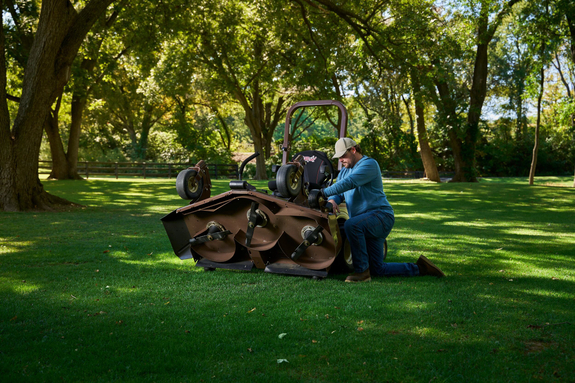
Some zero-turns can be difficult and time-consuming to maintain. Grasshopper mowers, on the other hand, are designed for easy maintenance. Changing routine items like engine oil and filters is simple. Additionally, there are just five grease points on MidMount and Stand-On models and fewer than 10 on FrontMounts. All are easy to access without tools, helping reduce grease time by up to 80% compared to some zero-turn mowers.
The transmissions on Grasshopper mowers are also designed for reduced maintenance by running cooler and more efficiently. Additionally, premium-quality transmission oil and filters can last up to five times longer than what’s found on some other mowers.
When a Grasshopper mower does require service you can’t handle, you can be confident that your servicing dealer has the training, tools and replacement parts necessary to ensure a timely repair. After all, your mower is only of use when it’s on your property working.
